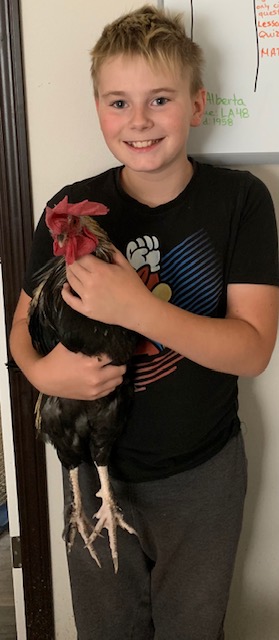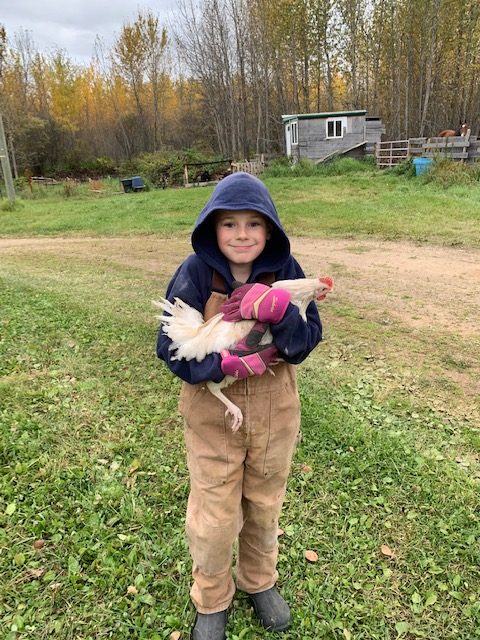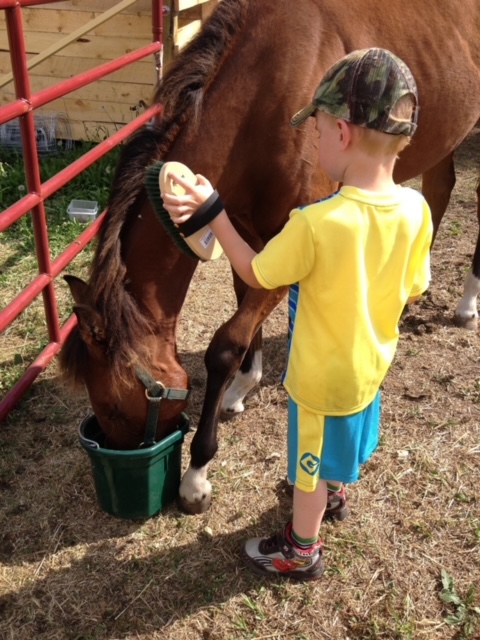Payton Williams has learned how to bake a cake, cook a pot roast and barbeque.
He’s 10 years old.
Williams, said his mother, Sharalynn Seibt, had always been given responsibility, which in turn has made her son more independent.
“It’s been ever since he was super, super little,” said Seibt. “So he wouldn’t really know a difference.
“When he’s hungry if I’m busy, he doesn’t have to say, ‘Hey mom can you make me a sandwich?’”
That independence has led to more freedom on their rural property near Athabasca, Alta. Williams has a pet rooster named Astroid (he sleeps with him in the house) and takes care of his chickens. He sells eggs and buys his own horse feed.
“Well it’s not that hard,” said Williams. “They all know me and I know them.
“That’s normal for me.”
But in a time when parents are often rushed at the grocery store or other appointments, it’s easy to talk for your child and do everything for them.
Read more:
‘Raising Can-Do Kids’: lessons for parents from entrepreneurs
That, says Seibt, is not how she was raised.
Her father stayed home when she was little, which led to an easy-going upbringing and trying new things on her own.
“I don’t want to raise a boy that’s going to sit there going, ‘OK, I’m an adult, now what do I do?’
“I don’t want to be doing everything for him forever and you can’t do everything and all of a sudden cut them off at 18 and say, ‘OK, figure it out.’”
Melissa Griffin, a former HR director in San Antonio, TX, now runs a parent focus group and coaches families to share the load in a household.
She calls herself the HR Mom.
Griffin said independence training should start when children are little.
“The second best time to start this,” said Griffin, “is right now.”
Griffin said parents can take on the role of mentor or coach to prepare their children for real life situations — while the stakes are still low.
While working in the corporate world, Griffin said young applicants were showing up to the job without basic skills.
Read more:
‘Snowplow parenting’ is preventing young adults from learning ‘basic life skills’
She works on “independence challenges” with her own three children.
“What I’m trying to develop,” said Griffin, “is a sense of agency over themselves.
“Instead of always being an accessory to what their mom is doing.”
Griffin starts with detailed instructions and often role-plays for her children.
They practice saying their order out loud in the car at a drive-thru and other possible conversations they may have with adults.
Start small, suggested Griffin, like asking your child to get change from a cashier.
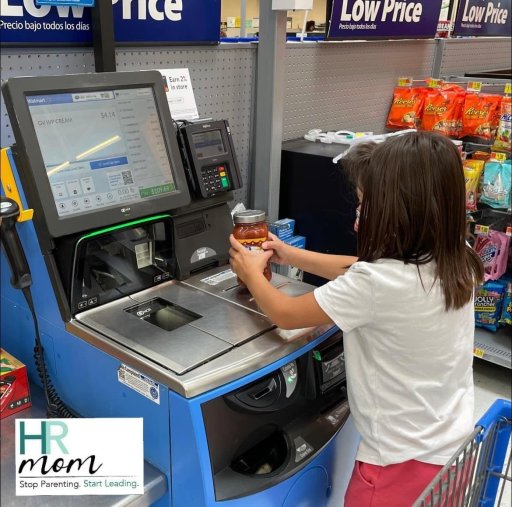
Melissa Griffin urges parents to teach their children independence. Griffin does independence challenges with her three children.
Supplied
“We’re working on interaction with adults, eye contact and being OK being in an unknown situation without a parent.”
Griffin said parents often tell her their child is too anxious to do things like filling out paperwork on their own or talking to a customer service agent.
She suspects that child is just nervous about the unknown.
Another way to build independence, said Griffin, is to let your children run items through a self-checkout station and figure out how to read instructions.
“If we always think we’re in too big of a hurry, we’re not ready, when they’re 15, 16… we start to go, ‘Why don’t you do anything? How come you don’t help?’”
When it comes time to do the task on their own, Griffin said stand back and “be invisible,” but only help if you are needed.
“So I’m here and if you ever get so anxious and so stuck that you need me, you can squeeze my hand and I’ll come up. Or you can motion to me and I’ll step up to the line.
“And that way they know I’m safe, I can try. I can make mistakes, mom’s not going to leave me out to dry.”
Follow-up is also important. When your child walks away from that challenge, give them immediate feedback.
Seibt said her son knows what’s expected of him.
“If he wants big person responsibility and privileges then he has to act big-person responsible.”
For other parents wondering how to grow that independence, Seibt said if given the opportunity, “they will totally surprise you.”
Having a rooster sleep in his bedroom has already taught her son how to get up at the crack of dawn.
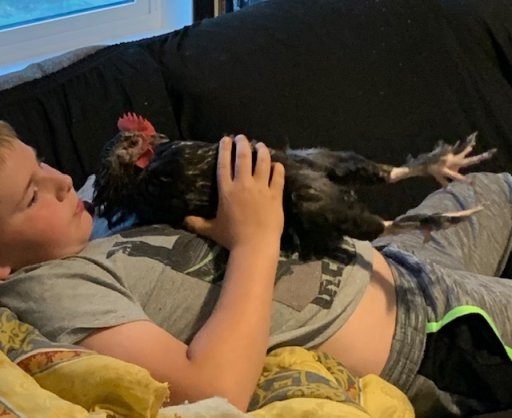
Patyon Williams with his rooster Astroid. Astroid crows in the morning until Payton snuggles him.
Supplied
“I just grab him and snuggle and he doesn’t crow anymore,” smiled Williams, “and he likes that.”
